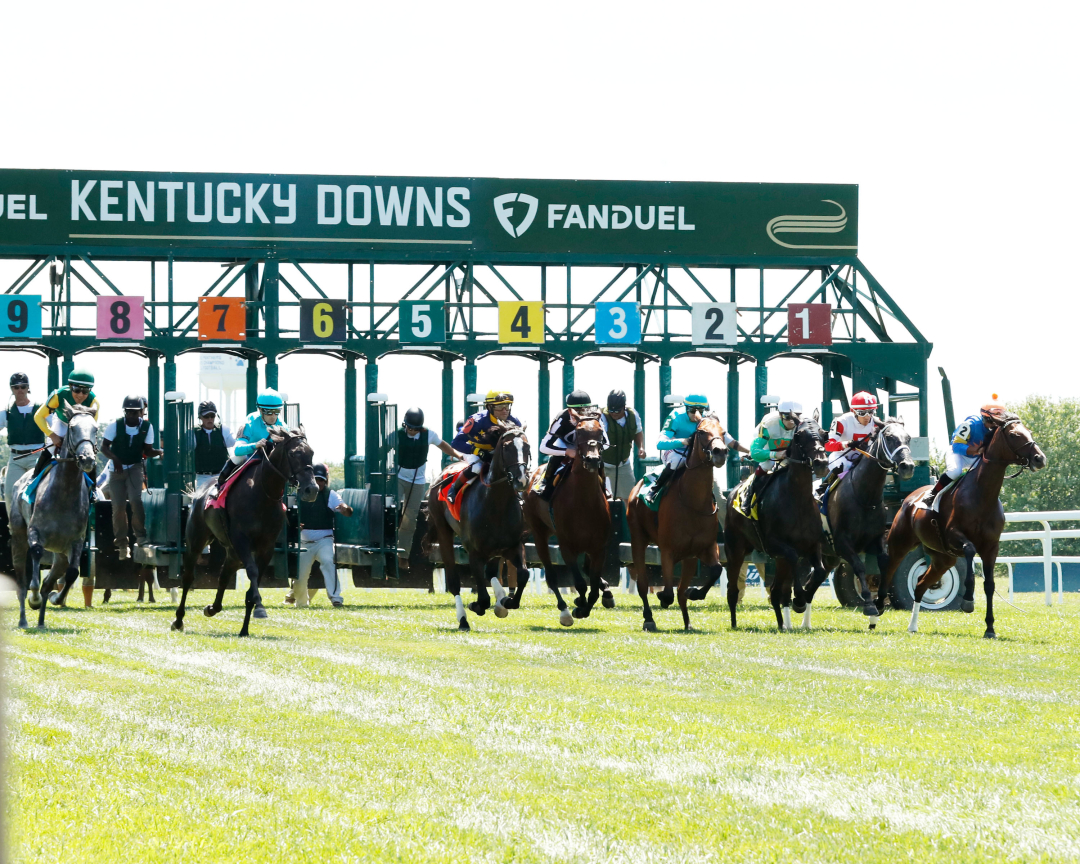Kentucky Downs in Franklin, Ky., posted record handle and purse numbers for the seven-day meet that concluded on Wednesday, according to an analysis by Daily Racing Form, further solidifying its unique position on the U.S. racing landscape.
The average purse at the track for 79 races was $531,000, according to the analysis, far and away the highest average in the United States. That figure was up 8.1 percent over the average purse at last year’s meet, when 76 races were run. For comparison, Keeneland Racecourse in Lexington, Ky., had a record average purse at its 2025 spring meet of $147,831, while Churchill Downs in Louisville during its spring-summer meet paid out an average of $143,084 per race.
Total handle at the meet jumped 19 percent, while the average handle per race increased 14.5 percent, to $1.36 million, or approximately four times the national average. While that’s a heady figure, the average handle per race at Kentucky Downs is below the figures generated by several tracks, such as Saratoga, where the average handle per race during a 40-day meet this year was $1.88 million for 420 races run.
Like all tracks in Kentucky, purses at Kentucky Downs are supplemented by revenues generated from a casino at the track and another satellite casino nearby. Because Kentucky Downs only runs for seven days each year, the purses have grown to mammoth levels as casino revenues continue to soar. The supplements are only available to horses registered with the Kentucky Thoroughbred Development Fund.
Field size for the races this year was an average of 10.82 horses per race, a figure that leads the nation. Last year, average field size was a similar 10.89 horses per race. Grass races typically draw larger fields than dirt races.
During the meet, Kentucky Downs employed a new timing vendor, a French company called McLloyd’s, that used a GPS system to generate fractional and final times. The timing system ran into multiple problems over the first several days of the meet, leading Equibase, the racing industry’s official data supplier, to conduct a video-analysis of the races and enter those times into its database.
The timing problems seemed to be ironed out beginning with the fourth card of the meet, according to figure makers and other independent observers.
Greg Pachman, a spokesman for the timing vendor who is an official for StrideSafe, a wearable technology company that partnered with McLloyd’s on a dual-use sensor for the meet, said on Thursday morning that the timing system was far more accurate after the first several days of the meet due to modifications of “a lot of little things added together” that were producing discrepancies between the system’s data and video analysis of the races.
Kentucky Downs began the meet with its temporary inner rail set 50 feet from the permanent rail, and Pachman indicated that the placement of the inner rail created problems for the system, which had not been tested under real-life racing conditions at Kentucky Downs until the meet started. The dual-sensor system had been tested earlier this year at Energy Downs in Wyoming, a track owned by the part-owner of Kentucky Downs, Pachman said.
The McLloyd system replaced a similar GPS timing system owned and operated by Equibase that has also experienced difficulties in the past when timing races at Kentucky Downs, where the turf course has an unusual shape and features several undulations. Equibase is co-owned by The Jockey Club and the Thoroughbred Racing Association, a racetrack trade group that includes Kentucky Downs as a member.
The Equibase data is used by Daily Racing Form and other publishers of handicapping products to generate accurate racing data for bettors. Final times are also key to the calculation of performance figures. Daily Racing Form is the exclusive provider of one form of performance figures, the Beyer Speed Figure.
:: Want to learn more about handicapping and wagering? Check out DRF's Handicapping 101 and Wagering 101 pages.

